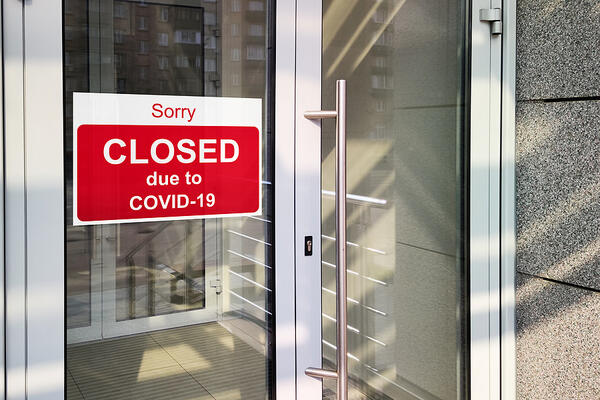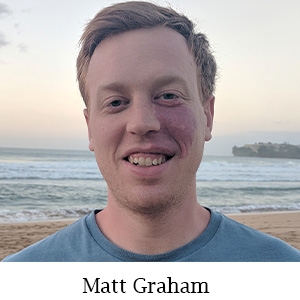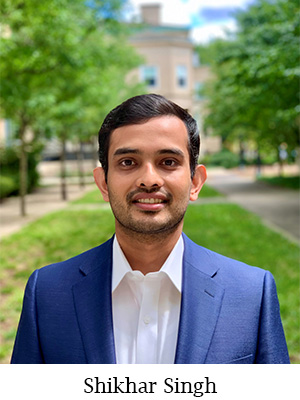Partisanship and Blame in the Early Days of COVID-19

On Jan. 20, 2020, the U.S. Centers for Disease Control and Prevention reported the first American, laboratory-confirmed case of what would eventually be called COVID-19. Two days later, the World Health Organization (WHO) decided against declaring spread of the novel coronavirus to be a public health emergency of international concern. Instead, they would continue monitoring and reconsider in 10 days.
At Yale’s Institution for Social and Policy Studies (ISPS), graduate fellows Matt Graham, Yale Ph.D., ’20, and Shikhar Singh, Yale Ph.D., ’22, did not know any more than most Americans then about what would become a global pandemic that has killed 6.9 million people, sickened and debilitated many millions more, upended economies, and sent enduring shocks throughout society.
But as social scientists, they saw an opportunity to learn something valuable from the evolving crisis. Moving quickly with the support of ISPS faculty and resources, Graham and Singh constructed and deployed a survey seeking to assess public attitudes as COVID-19 cases were just beginning to mount, before the WHO had even declared the rapidly spreading disease a pandemic.
“At a time when it was exceptionally difficult to find funding for projects, ISPS was there to listen to our pitch and support our data collection effort,” said Singh, now a postdoctoral research fellow at the University of Pennsylvania’s Center for the Advanced Study of India. “I am tremendously grateful for the intellectual guidance, continuous input, and readiness to support this research.”
The project grew through several iterations, resulting in a paper published this month in the American Political Science Review. In a series of surveys and experiments, Graham and Singh show how Democrats and Republicans quickly developed disagreements over former President Donald Trump’s responsibility for the pandemic, how such partisan disagreement occurred as a result of individual changes in perceptions of the pandemic as opposed to groups following the lead of political elites, and how the disparity in attributing blame was rooted in beliefs about voters’ perceptions about the competence of the president and not simply a blind allegiance to their party of preference.
“It’s an interesting pattern that shows you something about how people attribute political responsibility even when they are processing conditions objectively,” said Graham, now assistant professor of political science at Temple University. “Our findings indicate that this process of selective attribution of responsibility is more consistent with people thinking that their side is better than the other side. And attributing credit and blame in a way that is consistent with that and less of a psychological attachment to their party.”
Many researchers believe that people selectively interpret events through a partisan lens, positing that people are so attached to these identities that when they hear something negative about their side, they feel a psychological need to stretch facts and generate reasons to protect their positive evaluation. Consistent with the work of ISPS resident faculty fellow Alexander Coppock, Graham and Singh believe there is something more rational at work, which they teased out through experiments conducted during both the Trump and Biden presidencies.
They randomly assigned brief readings highlighting either positive or negative facts about the pandemic. Democrats and Republicans both changed their perceptions to reflect the facts presented in the readings. But participants made opposite inferences about presidential responsibility for the pandemic depending on their stated political party affiliation.
“The reason that might matter is that if you believe such selective attribution is a function of people’s beliefs, then it might be possible for people to reason objectively,” Graham said. “But if it’s a psychological need, then there is no hope for people to reason objectively.”
And understanding the dynamic at work has important implications for holding elected officials accountable.
“The problem with selective attribution is if you recognize a bad thing is happening when your party is in power but say to yourself that they must not be responsible for it,” Graham said. “This is likely to reduce the probability you will go the ballot box and punish your party for that bad thing happening. And if people don’t hold their party accountable for bad performance, it can undermine incentives that political parties have to cultivate a reputation for doing a good job.”
ISPS’s early entry into COVID-19 research led to the creation of a website to collect the university’s rapidly expanding collection of social science research on the pandemic and serve as a resource and catalyst for new interdisciplinary investigations.
Graham and Singh expressed their great appreciation for ISPS’s recognition in early February 2020 that although nobody knew what might happen over the coming weeks, they would not be able to go back in time to capture the data afterward.
“It wasn’t obvious we were going to make anything of this, but Alan Gerber, Greg Huber, and the rest of ISPS leadership have so much trust and willingness to invest in graduate students’ ideas,” Graham said. “We owe a huge amount of credit to the nimbleness, foresight, expertise, and academic support available at ISPS.”